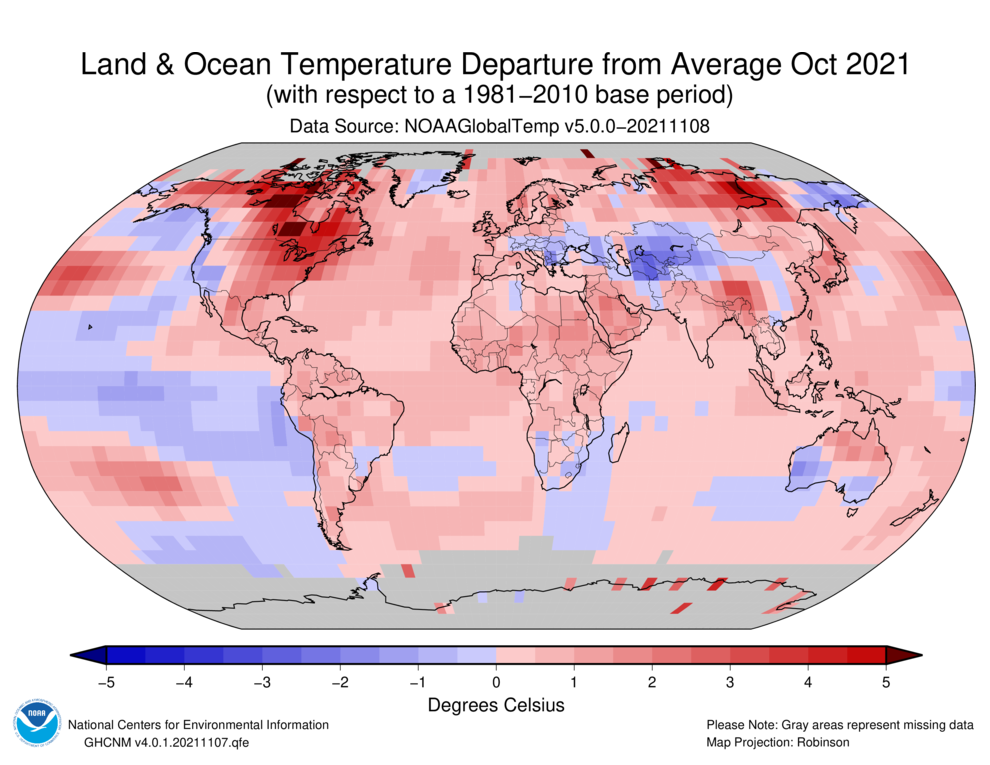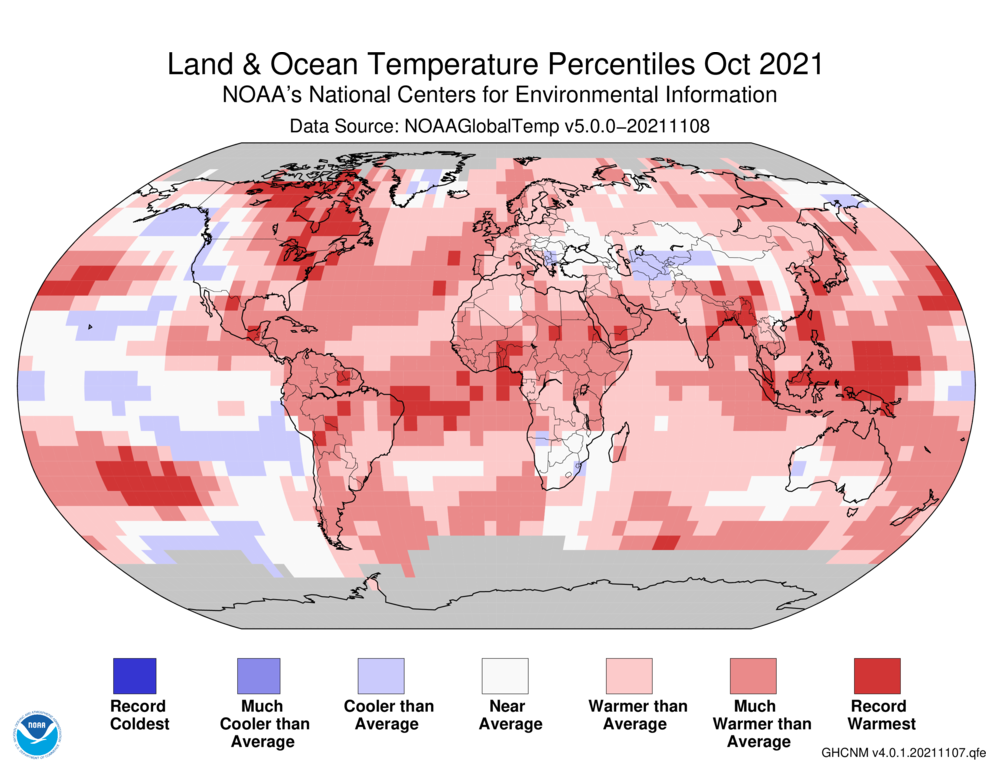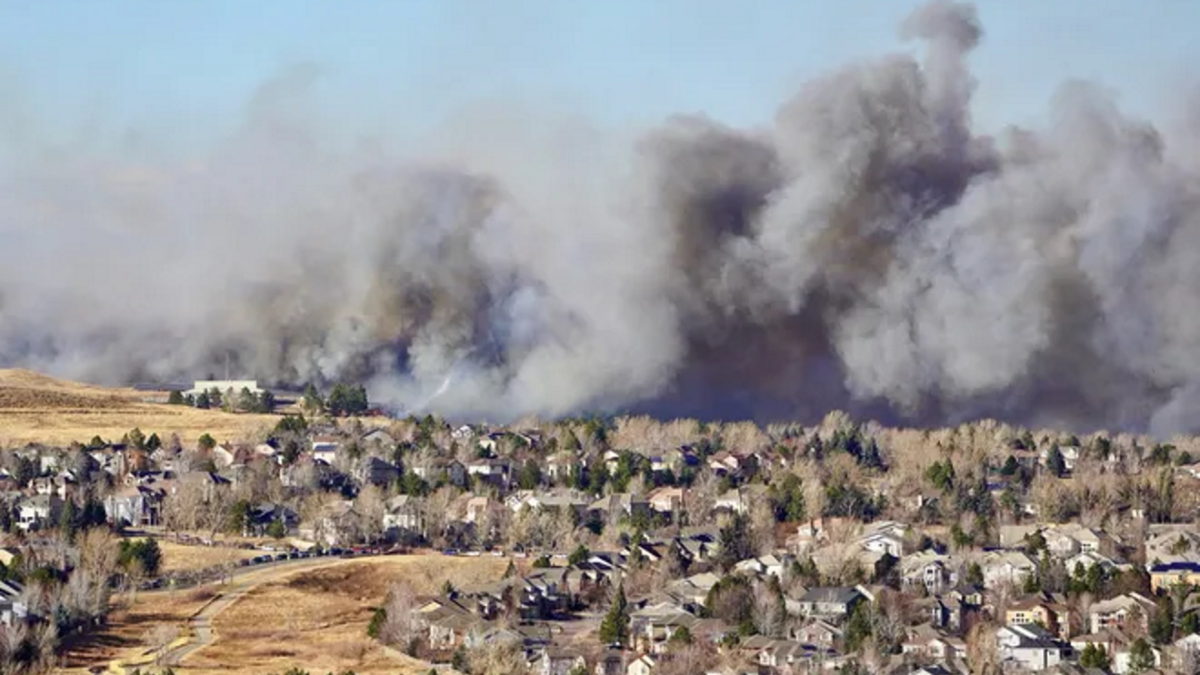October 2021 was Earth’s fourth-warmest October on record and warmest on record over Northern Hemisphere land areas

By Jeff Masters and Bob Henson
15 November 2021
(Yale Climate Connections) – October 2021 was Earth’s fourth-warmest October since global record-keeping began in 1880, 0.89 degree Celsius (1.60°F) above the 20th-century average, NOAA’s National Centers for Environmental Information, NCEI, reported November 15. NASA also reported October 2021 as the fourth-warmest October on record, 1.23 degrees Celsius (2.21°F) above the 1880-1920 period, which is its best estimate for when preindustrial temperatures occurred. Minor differences in rankings between the two agencies result from the different ways they treat data-sparse regions such as the Arctic.
As has been the case for much of 2021, the heat was focused more on land areas than ocean areas, thus affecting society more directly: October 2021 land areas had their third warmest October on record (warmest on record over Northern Hemisphere land areas), and global ocean temperatures were the fifth warmest on record, according to NOAA. Satellite-measured October temperatures of the lower atmosphere were the third-warmest in the 43-year-long record, according to Remote Sensing Solutions (RSS).

North America had its second-warmest October on record; South America had its third-warmest, Africa, its seventh warmest, and Asia, its 12th warmest. The contiguous U.S. experienced its sixth-warmest October on record, with 26 states recording a top-10 warmest October. It was also a very wet October in the U.S., ranking as the ninth wettest, and 10 states had a top-10 wettest October on record. However, at the end of October, at least moderate drought covered 48% of the contiguous U.S, the highest drought coverage for this time of year since 2012.
January-October ranked as Earth’s sixth warmest such period on record. According to NCEI’s annual temperature outlook, the year 2021 is virtually certain to rank among the 10 warmest years on record, and more than 95% likely to be the sixth-warmest on record. These odds are based on statistical averages and do not take into account the arrival of La Niña conditions (see below), which tend to reduce global temperature slightly. [more]



https://www.washingtonpost.com/weather/2021/12/02/december-record-heat-wave-us/